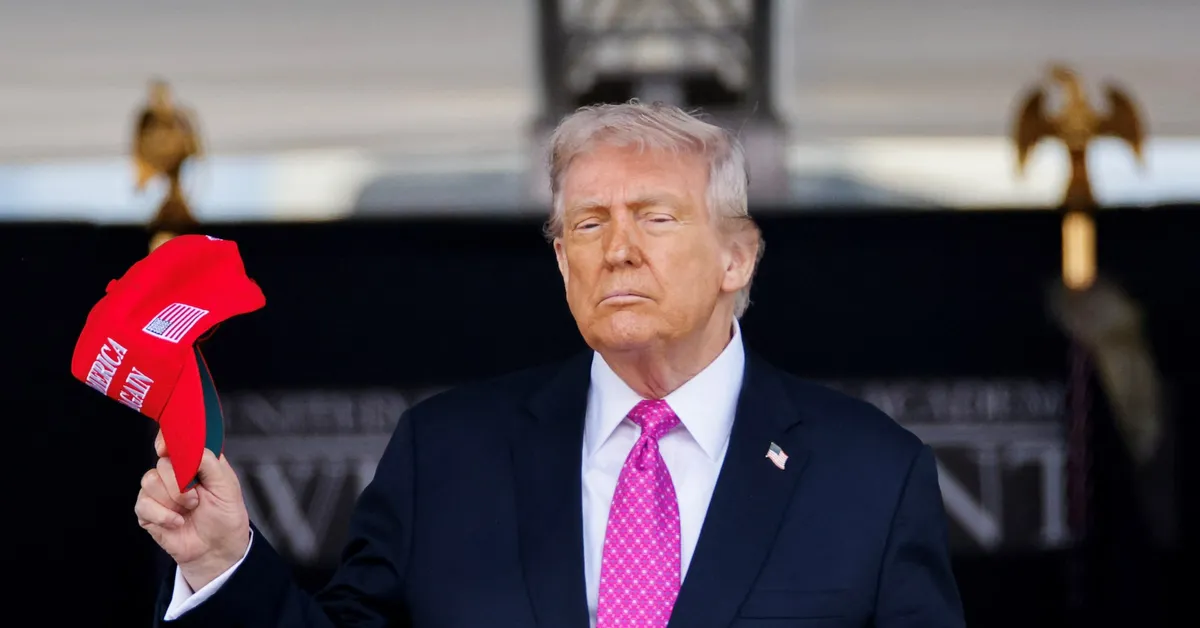
The ongoing discussions regarding a potential U.S. strike against Iran have unveiled significant divisions within the coalition of supporters that propelled President Donald Trump into office. A portion of Trump's base is now urging him to avoid entangling the nation in another Middle Eastern conflict, highlighting a shift in sentiment among some of his most prominent allies. Notably, figures like Steve Bannon, a key strategist in Trump’s administration, have publicly expressed their opposition to military involvement.
Steve Bannon, known for his influential role in the America First coalition, has recently called for caution regarding U.S. military actions alongside Israel aimed at dismantling Iran's nuclear program, especially in the absence of a diplomatic agreement. During an event hosted by the Christian Science Monitor in Washington, Bannon emphasized, “We can't do this again. We'll tear the country apart. We can't have another Iraq.” This sentiment reflects the growing concern among the anti-interventionist faction of the Republican Party as Trump seems to pivot from advocating for peaceful negotiations with Iran to potentially supporting military action.
Critics within Trump's base are increasingly alarmed at the prospect of U.S. involvement in a conflict with Iran, especially as reports suggest the possibility of deploying a 30,000-pound bunker buster bomb. Such a move would represent a stark departure from Trump's typically cautious approach to foreign interventions. Engaging in this conflict could jeopardize his efforts to maintain good relations within the Gulf region and distract from crucial negotiations related to the ongoing war in Ukraine and international tariff agreements.
The MAGA coalition, which played a pivotal role in Trump's victories in the 2016 and 2020 elections, remains essential for his political future, especially with the upcoming 2026 midterm elections. Alienating this base could not only diminish Trump's popularity but also influence the Republican Party's control over Congress. Despite the rift, Trump appears unfazed, asserting that his supporters remain loyal. “Iran cannot have a nuclear weapon,” he stated, reinforcing his stance while acknowledging some dissent within his ranks.
In a recent Reuters/Ipsos poll, a significant portion of Republicans—48%—indicated support for U.S. military intervention to protect Israel against external threats, compared to only 28% who disagreed. This suggests a substantial divide in public opinion within the party, particularly regarding foreign policy and military engagement. Some party members, including Marc Short, a former legislative director for Trump, believe that Trump's base will ultimately remain supportive, despite the current disagreements over Iran.
Bannon has urged Trump to take a step back regarding U.S. military involvement, insisting that any decision should be made with thorough consideration and public support. “You have to think this through at this level, and the American people have to be on board,” he stated, emphasizing the complexity of the situation. Other notable figures expressing caution include former Fox News host Tucker Carlson and Georgia Representative Marjorie Taylor Greene, who voiced their opposition to deeper U.S. involvement in foreign conflicts.
While some voices within the party call for restraint, others, like Senator Lindsey Graham, argue that Trump should support Israel's efforts against Iran, citing the latter as a significant threat to U.S. allies. This ideological clash was exemplified in a recent heated exchange between Carlson and Senator Ted Cruz, showcasing the ongoing debate within the party about the best approach to Iran. While Cruz defended a more interventionist stance, Carlson criticized it, underscoring the fractures in Republican foreign policy beliefs.
As Trump contemplates his next steps, he has indicated that he has ideas on how to proceed but has not finalized any decisions. The outcome of this deliberation will not only shape U.S.-Iran relations but could also have lasting implications for Trump's political career and the broader Republican Party. With the nation watching closely, the tension surrounding a potential military strike against Iran continues to evolve.